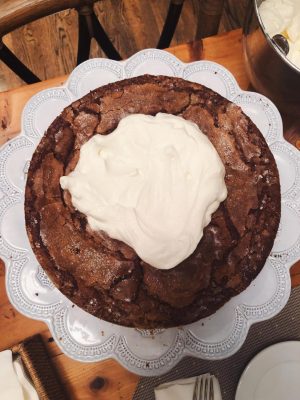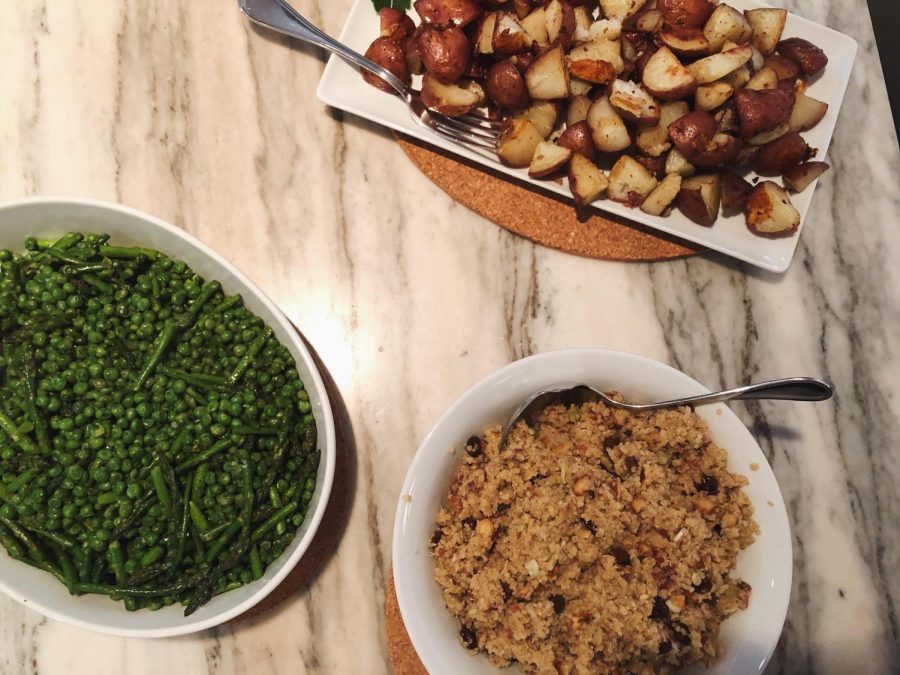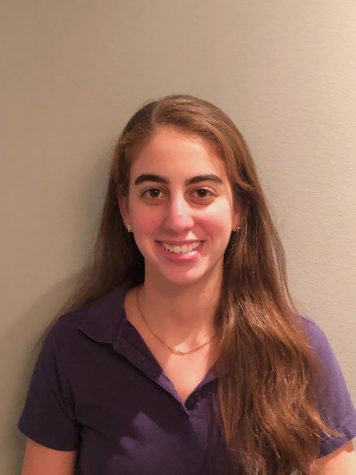Pass over the computer: celebrating Passover in quarantine
The Maierson family prepared a multitude of side dishes such as potatoes and peas for Passover dinner.
April 15, 2020
As my cousins changed their screen backgrounds to bizarre images like Mike Wazowski’s face from “Monsters Inc.,” I began to develop some idea of what our virtual Passover seder would be like.
For those who celebrate Passover, like myself, we eat unleavened bread (bread without yeast) for a week; however, being in quarantine has made “keeping Passover,” among other things, difficult. Because of the lack of matzah at the grocery store, my family made a unanimous decision that for the first time: we would allow ourselves to eat leavened bread. We would also be tuning into a virtual seder on Zoom with our other family members, something none of us ever thought we would be doing this April.
After my online classes ended around 12:15 p.m., I spent the rest of the day helping my mom cook an abnormally large dinner, as if we were fasting, for the seder. The aromas in the kitchen were familiar, but because my family typically visits my grandparents in San Antonio for our Passover seder, it was odd not seeing my grandma stressed out in her kitchen, as she cooks the seder for the other nine members of my extended family.

Bailey helped her mom make a flourless chocolate cake kosher for the family.
The strangest part of the whole night was finding a place to arrange two computers so that our family would be able to see us on camera. After testing a few locations, we decided it would be best to have one screen on one side of the table facing my brother and I, and the other screen facing my mom and dad.
Because of audio and Wi-Fi issues, our family decided to skip the songs and just proceed with the prayers and readings from the Haggadah. As we all logged onto Zoom and began our virtual seder, which included family members from ages one to 79, some chaos ensued, but it was truly a special and unique experience.
Still, the night somewhat resembled a traditional seder when we went around the “table” and took turns reading passages and prayers. We read The Four Questions, the Urchatz (washing of hands before eating fruits and vegetables) and the Karpas (where we dip the parsley from the seder plate into salt water and eat it as a reminder of the tears shed by our ancestors).
This year, I missed a couple of traditions that typically occur at our seder in San Antonio.
I missed the cousin side of the table where my brother and my twin cousins and I would shoot glances at each other if something amusing occurred during the seder. I missed my grandpa hiding the afikomen (a piece of matzah hidden sometime during dinner), sending all of the kids out on a hunt to find it, and then giving the winner (and all participants) a cash prize.
Despite this year’s unusual seder, I enjoyed being able to see my extended family members who I miss dearly, even if it was through a screen.





